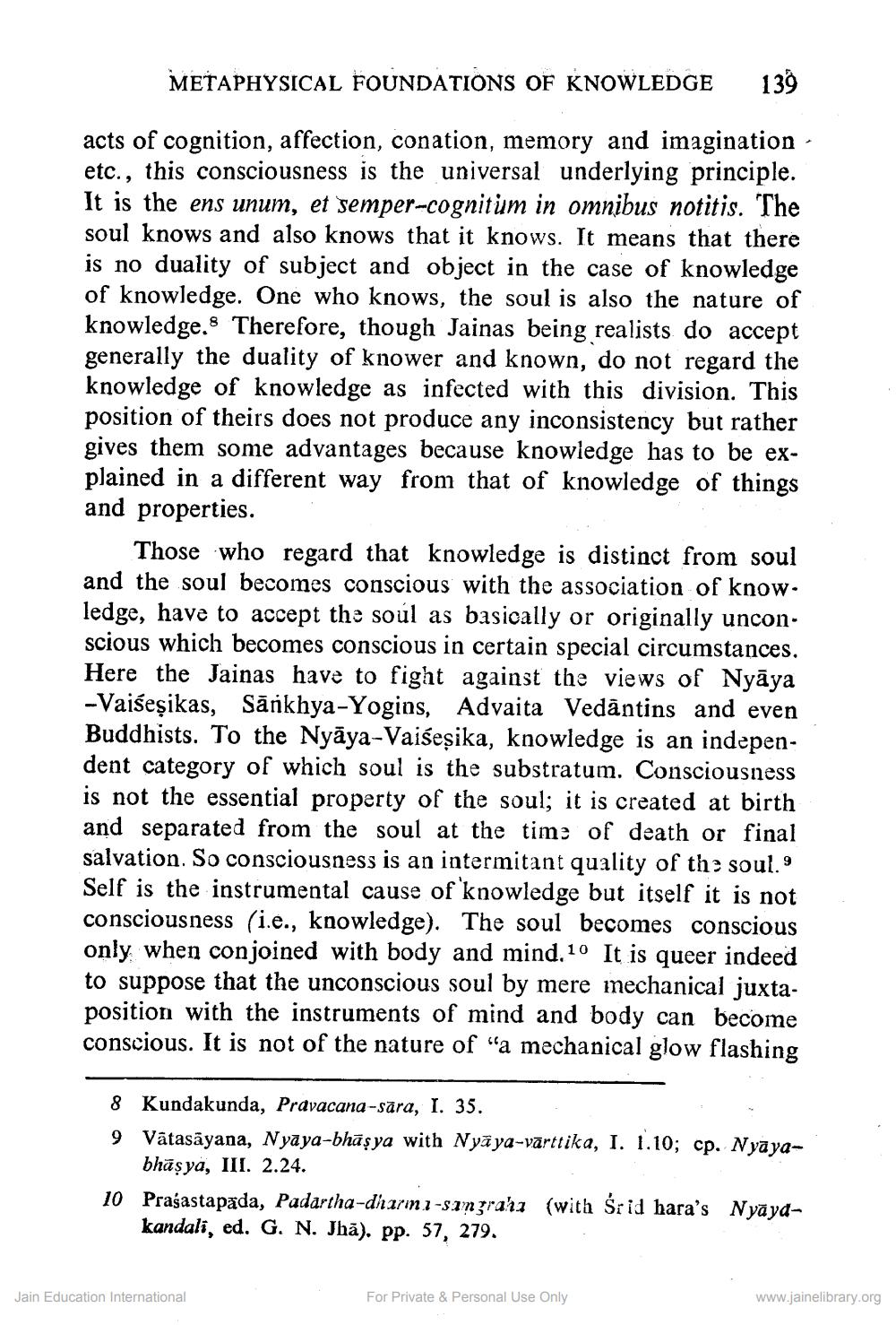________________
METAPHYSICAL FOUNDATIONS OF KNOWLEDGE
139
acts of cognition, affection, conation, memory and imagination - etc., this consciousness is the universal underlying principle. It is the ens unum, et semper-cognitum in omnibus notitis. The soul knows and also knows that it knows. It means that there is no duality of subject and object in the case of knowledge of knowledge. One who knows, the soul is also the nature of knowledge.8 Therefore, though Jainas being realists do accept generally the duality of knower and known, do not regard the knowledge of knowledge as infected with this division. This position of theirs does not produce any inconsistency but rather gives them some advantages because knowledge has to be explained in a different way from that of knowledge of things and properties.
Those who regard that knowledge is distinct from soul and the soul becomes conscious with the association of knowledge, have to accept the soul as basically or originally unconscious which becomes conscious in certain special circumstances. Here the Jainas have to fight against the views of Nyāya -Vaišeşikas, Sānkhya-Yogins, Advaita Vedāntins and even Buddhists. To the Nyāya-Vaiseșika, knowledge is an independent category of which soul is the substratum. Consciousness is not the essential property of the soul; it is created at birth and separated from the soul at the time of death or final salvation. So consciousness is an intermitant quality of the soul.' Self is the instrumental cause of knowledge but itself it is not consciousness (i.e., knowledge). The soul becomes conscious only when conjoined with body and mind, 10 It is queer indeed to suppose that the unconscious soul by mere mechanical juxtaposition with the instruments of mind and body can become conscious. It is not of the nature of a mechanical glow flashing
8 Kundakunda, Pravacana-sära, I. 35. 9 Vātasāyana, Nyaya-bhāșya with Nyāya-vārttika, I. 1.10; cp. Nyaya
bhāsya, III. 2.24. 10 Prasastapada, Padartha-dharm 1-sinzraha (with śrid hara's Nyäyd
kandali, ed. G. N. Jhā). pp. 57, 279.
Jain Education International
For Private & Personal Use Only
www.jainelibrary.org




